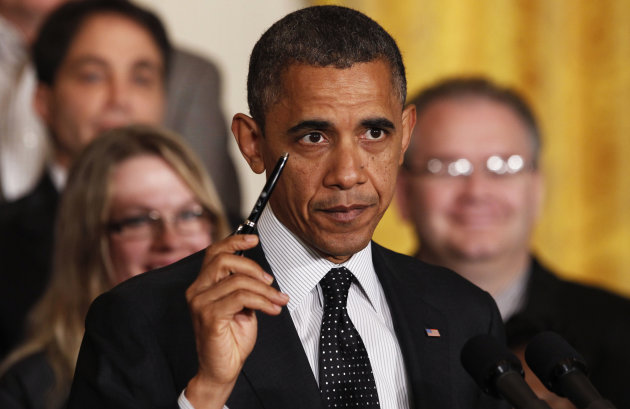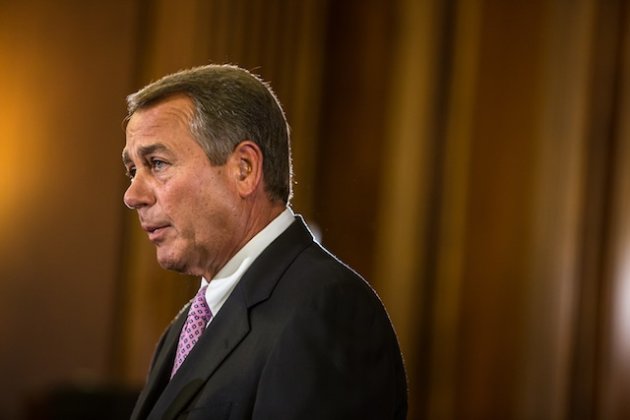DOHA (Reuters) – President Bashar al-Assad said he would “live and die” in Syria and warned that any Western invasion to topple him would have catastrophic consequences for the Middle East and beyond.
Assad’s defiant remarks coincided with a landmark meeting in Qatar on Thursday of Syria’s fractious opposition to hammer out an agreement on a new umbrella body uniting rebel groups inside and outside Syria, amid growing international pressure to put their house in order and prepare for a post-Assad transition.
The Syrian leader, battling a 19-month old uprising against his rule, appeared to reject an idea floated by British Prime Minister David Cameron on Tuesday that a safe exit and foreign exile for the London-educated Assad could end the civil war.
“I am not a puppet. I was not made by the West to go to the West or to any other country,” he told Russia Today television in an interview to be broadcast on Friday. “I am Syrian; I was made in Syria. I have to live in Syria and die in Syria.”
Russia Today’s web site, which published a transcript of the interview conducted in English, showed footage of Assad speaking to journalists and walking down stairs outside a white villa. It was not clear when he had made his comments.
The United States and its allies want the Syrian leader out, but have held back from arming his opponents or enforcing a no-fly zone, let alone invading. Russia has stood by Assad.
The president said he doubted the West would risk the global cost of intervening in Syria, whose conflict has already added to instability in the Middle East and killed some 38,000 people.
“I think that the price of this invasion, if it happened, is going to be bigger than the whole world can afford … It will have a domino effect that will affect the world from the Atlantic to the Pacific,” the 47-year-old president said.
“I do not think the West is going in this direction, but if they do so, nobody can tell what is next.”
QATAR, TURKEY CHIDE OPPOSITION
Backed by Washington, the Doha talks underline Qatar’s central role in the effort to end Assad‘s rule as the Gulf state, which funded the Libyan revolt to oust Muammar Gaddafi, tries to position itself as a player in a post-Assad Syria.
Qatari Prime Minister Hamad bin Jassim Al Thani urged the Syrian opposition to set its personal disputes aside and unite, according to a source inside the closed-door session.
“Come on, get a move on in order to win recognition from the international community,” the source quoted him as saying.
Turkish Foreign Minister Ahmed Davutoglu delivered a similar message, saying, according to the source: “We want one spokesman not many. We need efficient counterparts, it is time to unite.”
An official text of a speech by Qatari Foreign Minister Khalid Mohamed al-Attiyah showed he told the gathering: “The Syrian people awaits unity from you, not divisions … Your agreement today will prove to the international community that there is a unity … and this will reflect positively in the international community’s stance towards your fair cause.”
Across Syria, more than 90 people were killed in fighting on Thursday, the Syrian Observatory for Human Rights said.
In Turkey’s Hatay border province, two civilians, a woman and a young man, were wounded by stray bullets fired from Syria, according to a Turkish official. Turkish forces increased their presence along the frontier, where officials have said they might seek NATO deployment of ground to air missiles.
Syria poses one of the toughest foreign policy challenges for U.S. President Barack Obama as he starts his second term.
International rivalries have complicated mediation efforts. Russia and China have vetoed three Western-backed U.N. Security Council resolutions that would have put Assad under pressure.
Syria’s conflict, pitting mostly Sunni Muslim rebels against forces dominated by Assad’s Alawite minority, whose origins lie in Shi’ite Islam, has fuelled sectarian tensions across the Middle East. Sunni Arab countries and Turkey favor the rebels, while Shi’ite Iran backs Assad, its main Arab ally.
“VICIOUS CIRCLE”
The main opposition body, the Syrian National Council (SNC), has been heavily criticized by Western and Arab backers of the revolt as ineffective, run by exiles out of touch with events in Syria, and under the sway of the Islamist Muslim Brotherhood.
British Foreign Minister William Hague said London would now talk to rebel groups inside Syria, after U.S. Secretary of State Hillary Clinton last week criticized the SNC and called for a new opposition body to include those “fighting and dying”.
But the plan for a body that could eventually be considered a government-in-waiting capable of winning foreign recognition and therefore more military backing ran into trouble almost as soon as it was proposed by SNC member Riyad Seif.
The meeting has so far been bogged down by arguments over the SNC representation and the number of seats the rival groups – which include Islamists, leftists and secularists – will have in a proposed assembly. Seif said he hoped for agreement on that on Thursday night, although the talks may continue into Friday.
Senior SNC member Burhan Ghalioun said the participants were moving towards consensus: “The atmosphere was positive. We all agree that we don’t want to walk away from this meeting in failure,” he told reporters.
Seif’s proposal is the first concerted attempt to merge opposition forces to help end the devastating conflict.
The initiative would also create a Supreme Military Council, a Judicial Committee and a transitional government-in-waiting of technocrats – along the lines of Libya’s Transitional National Council, which managed to galvanize international support for its successful battle to topple Gaddafi.
Michael Doran of the Brookings Institute in Washington told a forum in Doha it would not work for Syria. “It’s not a ridiculous idea, but it’s not going to succeed,” he said.
A diplomat on the sidelines of the talks said international divisions in the U.N. Security council did not help.
“It’s a vicious circle. They are asking the opposition to unite when they admit they are not themselves united,” he said.
(Writing by Tom Perry and Samia Nakhoul; Editing by Alistair Lyon, Alastair Macdonald and Philippa Fletcher)
World News Headlines – Yahoo! News












